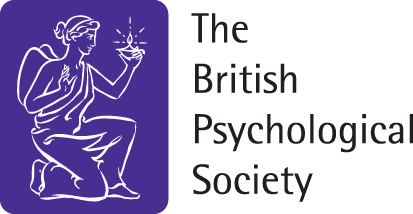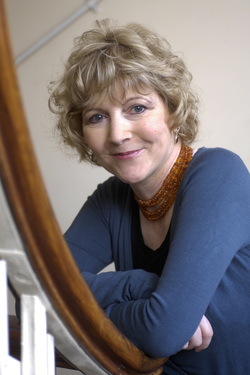|
Dr Gillian Harris (Phd, MSc, Ba, AFBPsS, C.Psychol) has carried out research into infant and child feeding behaviour and appetite regulation at the University of Birmingham, School of Psychology for the past 30 years. She was also a Consultant Paediatric Clinical Psychologist for 27 years and led a feeding clinic at The Children’s Hospital, Birmingham, where she worked with infants and children who were food averse. Her specific research and clinical interest is the development of food acceptance and rejection in early infancy and early childhood, and the effect of early experience on later food preferences. She has written around 100 published papers, articles and book chapters on these areas, and been awarded multiple research grants to support her research. Past research studies have led to changes in the management of nutrition in children with specific illnesses (e.g. children with cystic fibrosis) or have led to the development of interventions, or parent information, for children undergoing specific treatments, (e.g. desensitizing and oral stimulation for children who are tube–fed in the first year of life), or for children with Avoidant/Restrictive Food Intake Disorder (ARFID). She has also frequently run, or contributed to, workshops or study days for local groups of health professionals, or Special Interest Groups, both within Birmingham, nationally and internationally, in which her research findings and research models are disseminated. Her publications, and invited talks, have led to changes nationally, in the assessment and treatment of children with eating problems, and in weaning practices generally. Her work is frequently reported in national newspapers and magazines and television and radio. A notable television programme was the BBC QED 'Food Fights' in 1994, and the most notable radio programme was BBC Woman’s Hour in November 1999. Since that time she has frequently spoken on local radio and her work has been reported in the popular press. She has contributed to, and appeared in, a Channel 4 (Aug 2002) programme on ‘Children Behaving Badly’, in which she talked about her work with children who refuse to eat. She has appeared on BBC TV ‘Fat Nation’ speaking about the psychophysiology of weaning children on to solid foods (September 2004), and spoken about children’s acceptance of vegetables on Radio 4, The Food Show, (2008). She also acted as a consultant to a TV series, presented by Sir Robert Winston, on instincts (2003). An ITV documentary ‘My child won’t eat’, which centred on her work as a clinician with children with food refusal, was shown in June 2008. It attracted approximately 6 million viewers, and has been shown around the world twice, since that date. She is cited in one of the most popular child care books (Raising Happy Children, Parker & Stimpson, (1999, 2003), Hodder and Stoughton,) as an expert in childhood eating behaviour, and her work is frequently reported in magazines and newspapers which are directed at parents of young children. Her work for the Infant and Toddler Forum has resulted in Factsheets for Health professionals and parents on childhood food acceptance and refusal which have been downloaded in their tens of thousands. Her latest Factsheet, Developmental Stages in Food Acceptance is proving similarly popular. Dr Harris has now set up a training and clinical service in collaboration with Sarah Mason, one of the leading Speech and Language therapists in the field of food acceptance and refusal. She continues with her research at the University of Birmingham and with her work with the Infant and Toddler Forum. She is a trustee for Arfid Awareness, a charity that works to improve the understanding of Avoidant and Restrictive Food Intake Disorder. |
|
Sarah Mason (MSc, MPhil, MRCSLT) is a Speech and Language Therapist who has worked with children with feeding difficulties for more than twenty years. She was employed by Birmingham Children’s Hospital from 1992 to 2012, latterly as Head of the Department. Her particular specialism was childhood feeding difficulties, providing clinical services to inpatients. Many of these children had problems related to their medical conditions, tube feeding and the interruption to the normal process of weaning onto solid foods in the first year of life. Frequently children would refuse foods orally and therefore did not develop the oral skills for eating and drinking. These problems brought her into contact with Dr Gillian Harris, Consultant Clinical Psychologist, and together they set up a joint feeding clinic at Birmingham Children’s Hospital in 1998. Through this work she encountered children with avoidant /restrictive food intake disorder (ARFID) and developed an understanding of why children refuse foods. Sarah Mason also developed a particular interest in children who are hard to wean off tube feeding. This became the focus of her MPhil completed in 2006 at the School of Psychology, Birmingham University. Following her retirement from the NHS in 2012, she is continuing her interest in feeding difficulties through teaching and consulting work. She is an Associate of Birmingham University and a member of the National Steering Group for Childhood Feeding Disorders. She is an experienced presenter of formal and informal lectures to a wide range of audiences. |
|
Dr Maddy Greville-Harris (DClinPsy, PhD, MSc, BSc) is a Clinical Psychologist and Senior Lecturer at Bournemouth University. Maddy has experience of working with children and young people across a range of settings including NHS mental health settings and in her role as a university pastoral tutor. Maddy’s research area for the past 7 years has focused on disordered eating, particularly experiences of Orthorexia Nervosa, the impact of the pandemic on eating disorder symptomatology and piloting emotion-based interventions for disordered eating. Since 2020, Maddy has collaborated on 9 published peer-reviewed research articles, and she is now working privately in the area of ARFID assessment and management. She currently receives training and supervision from Dr Gillian Harris, who is an expert in ARFID.
|







